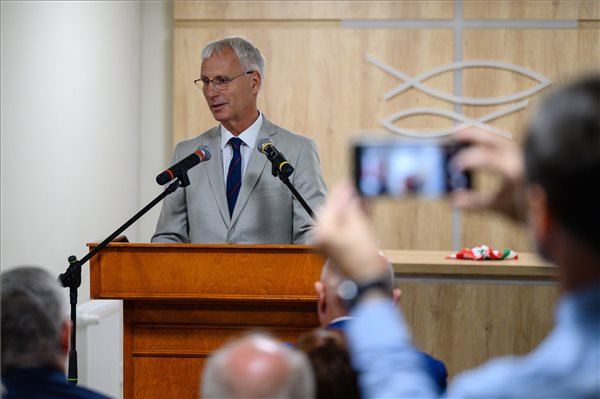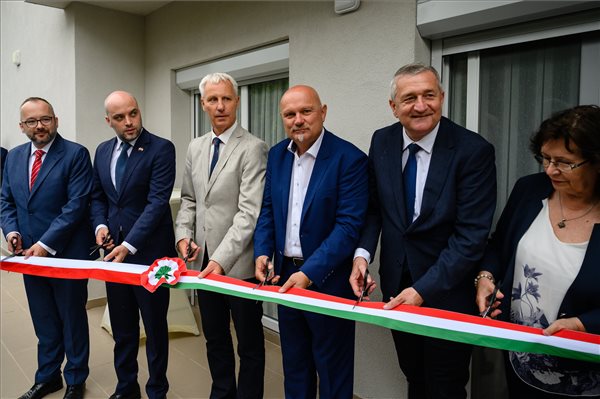"Today, western, central, and eastern Europe represent a completely different set of values," said Przemyslaw Czarnek. Continue reading

“A few years between two nations should not ruin the wonderful cooperation of a millennium,” said the Secretary of State for Church and Nationality Relations on Tuesday at the inauguration of a training center of the National Polish Self-Government in Balatonboglár (south shore of Lake Balaton), referring to Hungarian-Polish relations.
Miklós Soltész recalled that Poland’s ambassador in Budapest had understandably and rightly said a few weeks ago that Hungarian-Polish relations had cooled down. “That is absolutely true, history always brings ups and downs,” he said. However, a few years, months, or even a decade between two peoples should not spoil the friendship, he added.
He stressed that the Hungarian government is fully open to continuing the relations, which are important for all of us along the lines of common values.
The State Secretary said that
alongside war, our traditional values, most notably Christianity, are under attack, by attempts to repress our nations and marginalize nationalities.
Our task is to act together on these issues, to defend our nations and Christianity against the attacks that we are witnessing in Poland, Hungary, and across the European Union, he underlined.
He suggested that after the improvement of Polish-Hungarian relations, there are further opportunities for cooperation, for example in Budapest in cultural fields.

Zbigniew Ciosek, Head of the Department for Cooperation with Poles Abroad of the Polish Ministry of Foreign Affairs, Sebastian Kiecek, Polish Ambassador of Hungary, Miklós Soltész, State Secretary for Church and Ethnic Relations of the Prime Minister’s Office, József Móring, Government Commissioner for the Development of the South Transdanubian Region, Miklós Mészáros, Mayor and Ewa Rónayné Slaba, Polish National Speaker of the National Assembly (L-R). Photo via MTI/Vasvári Tamás
The State Secretary said that in Balatonboglár in 1939, Hungarians welcomed Poles who fled the German and Soviet occupation with love, respect, and great devotion. On the site of the current training center, a secondary school for Polish students was established under the leadership of parish priest Béla Varga.
He recalled that on July 1, 2002, 19 people died in Balatonkeresztúr (south shore of Lake Balaton) in a bus accident carrying Polish pilgrims to Medjugorje (village in Bosnia and Herzegovina, popular site of Catholic pilgrimage).
When the building was constructed, we also thought that it should not only be a center for young Polish people, but also a place where pilgrims on their way to Medjugorje could rest,”
said Soltész.
Via MTI, Featured image via MTI/Vasvári Tamás